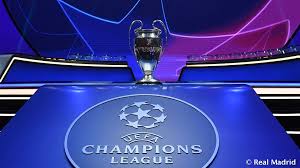
It takes a worried man to sing a worried song,
It takes a worried man to sing a worried song,
I’m worried now, but I won’t be worried long!
Woody Guthrie
Anxiety is a killer, literally. When one is anxious, the stress causes great harm to the body. However, everyone is anxious about something, indeed, if you were not then you might very well be a sociopath (which if you are, good for you).
Stress and anxiety are generally considered as negatives. Alan Watts treats anxiety as a cycle that needs to be broken. Indeed, his most famous quote for his half-baked (if I’m being generous) philosophy is, ‘No amount of anxiety makes any difference to anything that is going to happen’, which is patently untrue.
Why is it untrue? Well, let’s engage in a little thought experiment. Say you have to go on a long journey with which you are unfamiliar. Before the journey you are worried because you are dealing with the unknown. So, what do you do? You do research- you check train times, you check maps, you set up the sat-nav, in other words, you create a roadmap (pun intended) for your journey. And so, we can see that the worry you had about the journey has been helpful because through it you have taken decisive actions which can reduce the anxiety. This, Mr Watts, will change what is going to happen.
Anxiety before a big event can also be known to sharpen the senses. The question here must be, why are you worried? You are worried because the event matters to you and/or your own wellbeing matters to you. So, by feeling the anxiety, it can help you to focus better on what is required and block out any irrelevant noise.
Now, you might be thinking, what of the Ancient Greek and Roman philosophers, what of the Buddha, who said that you should not have concerns about the future, and should only focus on the now? Indeed, Epicurus said that the greatest destroyer of happiness is fear of the future.
Here, it seems that the above have been misunderstood. By saying that one should only focus on what one can control, i.e. the present, what they are saying is that if one uses the present to think and plan ahead then one can have more control over the future. There is a difference between worrying about an unknown future and making plans and provisions to counter possible future problems. Saving money, brushing your teeth, taking an umbrella when the forecast is rain are all actions in the present designed to prevent, or lessen, problems in the future. Indeed, the anxiety that ‘I may get wet’, can changes future events by preventing the wetness by use of an umbrella.
Here, I think, we can determine two forms of anxiety. One form is when one is proactive and takes steps to reduce or lessen possible future problems and the other is when one is inactive and does not take the steps. As with most things, it all comes down to subjectivity. Some people see, to use the cliché, obstacles as challenges, others see them as unscalable walls. To be fair, some problems cannot be solved, some anxieties are justified, and this is where the action that can be taken is psychological and not physical (in the most part- one can engage in physical activity combined with the thought process). For example, we all grow old- if we are lucky. The aging process is natural. However, by accepting it, this obstacle can become an opportunity to develop as a person. A misunderstanding of Buddhism is that ‘to live is to suffer’ which people take to mean it is all hopeless and life is suffering. What it actually means is that, yes, when we live, at times we suffer, but by finding the cause of our suffering we can cease or lessen it.
To live is to suffer from anxiety, this is true, however, anxiety is not life, it is a part of us that once we accept, can be used to aid personal growth and let us become the truest versions of ourselves
‘till next time



